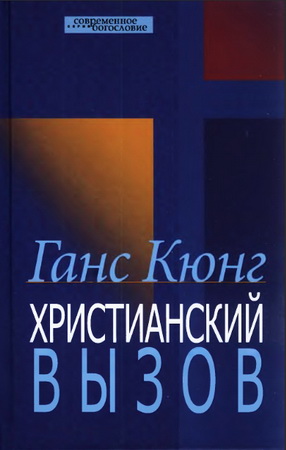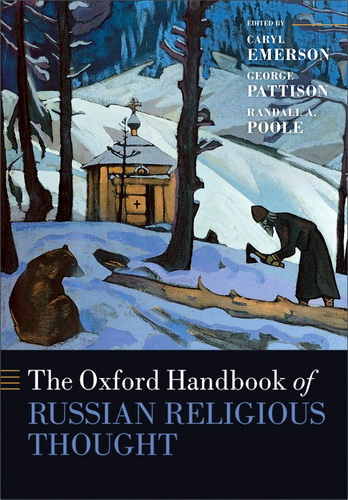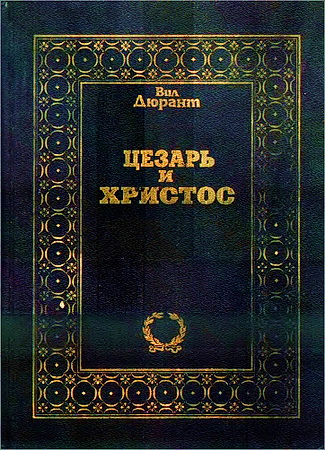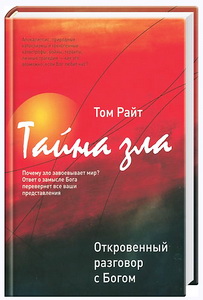
Oxford Handbook of Russian Religious Thought
Over three hundred years after Peter the Great’s campaign to reinvent Russia as a modern European nation, the opposition between ‘Russia’ and ‘the West’ remains a potent cultural meme that plays out in manifold ways—not least in the dangerous domain of geo-political competition. Remarkably, the terms of this supposed opposition have remained more or less constant throughout a period in which Russia moved from Tsarist autocracy, through Soviet Communism, and on to today’s ‘sovereign democracy’. From the Western point of view, Russia has persistently appeared enigmatic, mysterious, and indefinable, its mentality defined by the infinite horizons of the steppe and its polity by a seemingly unshakeable penchant for authoritarian rule. Even some of its undeniably great cultural achievements in literature, music, and (not least) dance are seen as revealing the predominance of passion over reason and a deeply embedded collective identity that is impermeable to Western individualism (The Rite of Spring inevitably comes to mind). Since at least the Slavophile movement of the nineteenth century, Russia has responded in kind, as several essays in this collection will explore.
At the same time, even though the Western stereotypes are at first glance predominantly negative, Russia has not only perplexed and repelled outsiders—it has also fascinated. Russian otherness has sometimes seemed to promise dimensions of experience unavailable in the West, from the mysticism and liturgical splendour of its Church to the eschatological hopes invested in its Communist Revolution. As translations of Russian literature became widely available from the late nineteenth century onwards, and as Russian music, art, and dance came to play a formative role in the modernist reshaping of European culture, while successive waves of travellers and emigres helped expand the Western understanding of Russian culture, Russophobia began to give way to Russophilia. As in other forms of orientalism, this often involved elements of fantasy no less exaggerated than those of the Russophobes, as can be seen in the portrayal of ‘Russian man’ in the writings of the theologians Karl Barth and Eduard Thurneysen, who saw the wildness of the Russian character as a much-needed antidote to the petit bourgeois attitudes of their Protestant congregations.
It would be nice to imagine that, over time, a more balanced and realistic view emerged, and to some extent that has happened. At least in scholarly literature, it is understood that the kind of binary oppositions that were frequently encountered in the twentieth century need extensive revision. Without denying the importance of Russian forebears such as Pushkin and Gogol, Dostoevsky was from early on familiar with and influenced by Dickens, Hugo, and Sand. Even Slavophile depictions of the opposition between a mystical East and a rationalistic West can be seen to have drawn on the concepts and categories of German idealism. Philosophy, despite the exoticism of Soloviev’s sophiology, was generally seen as a common intellectual pursuit between Russian and Western thinkers until Lenin’s expulsion of non-Communist intellectuals in 1922. So, too, in mathematics and natural science. At the same time, elements of Russian culture have become embedded in the West, offering points of reference and resources across a wide range of cultural activities. If Dostoevsky’s novels reveal French and English influences, his own work—like that of Tolstoy, Turgenev, and Chekhov—has played an incalculable role in shaping subsequent European and global literature. Figures such as Metropolitan Anthony Bloom and Archimandrite Sophrony Sakharov have modelled Russian Orthodox spirituality in ways that have helped make it a living ecclesiastical force in the West. More broadly, the Jesus prayer and the use of icons is now commonplace in many Catholic and Protestant circles. But whether we think of ‘Russia’ and ‘the West’ in terms of ontological opposition or of convergent and overlapping traditions, a deeper understanding and appreciation of Russia remains an important task for contemporary Humanities scholarship.
Caryl Emerson, George Pattison, Randall A. Poole (ed.) - The Oxford Handbook of Russian Religious Thought
Oxford University Press, Great Clarendon Street, Oxford, United Kingdom, 2020. - 740 pp.
ISBN 978-0-19-879644-2
Caryl Emerson, George Pattison, Randall A. Poole (ed.) - The Oxford Handbook of Russian Religious Thought - Contents
- Contributors
- Introduction
- Note on Transliteration
PART I. HISTORICAL CONTEXTS
- 1. David Goldfrank - Christianity in Rus’ and Muscovy
- 2. Nadieszda Kizenko - The Orthodox Church and Religious Life in Imperial Russia
- 3. Vera Shevzov - The Orthodox Church and Religion in Revolutionary Russia, 1894-1924
- 4. Zoe Knox - Russian Religious Life in the Soviet Era
PART II. THE NINETEENTH CENTURY
- 5. Oleg V. Bychkov - The Theological-Aesthetic Vision of Metropolitan Filaret
- 6. Patrick Lally Michelson - Russian Orthodox Thought in the Church’s Clerical Academies
- 7. G. M. Hamburg - Petr Chaadaev and the Slavophile-Westernizer Debate
- 8. Randall A. Poole - Slavophilism and the Origins of Russian Religious Philosophy
- 9. Victoria Frede - Nihilism
- 10. George Pattison - Dostoevsky
- 11. Caryl Emerson - Tolstoy
- 12. Catherine Evtuhov - Vladimir Soloviev as a Religious Philosopher
PART III. THE RELIGIOUS-PHILOSOPHICAL RENAISSANCE, 1900-1922
- 13. Erich Lippman - God-seeking, God-building, and the New Religious Consciousness
- 14. Ruth Coates - Theosis in Early Twentieth-Century Russian Religious Thought
- 15. Randall A. Poole - The Liberalism of Russian Religious Idealism
- 16. Regula M. Zwahlen - Sergei Bulgakov’s Intellectual Journey, 1900-1922
- 17. Christoph Schneider - Pavel Florensky: At the Boundary of Immanence and Transcendence
- 18. Ana Siljak - The Personalism of Nikolai Berdiaev
- 19. Scott M. Kenworthy - The Name-Glorifiers (Imiaslavie) Controversy
- 20. Dominic Rubin - Judaism and Russian Religious Thought
PART IV ART IN RUSSIAN RELIGIOUS THOUGHT
- 21. Victor V. Bychkov - Russian Religious Aesthetics in the First Half of the Twentieth Century
- 22. Rebecca Mitchell - ‘Musical Metaphysics’ in Late Imperial Russia
- 23. Martha M. F. Kelly - Furor Liturgicus: The Religious Concerns of Russian Poetry
- 24. Clemena Antonova - The Icon and Visual Arts during the Russian Religious Renaissance
PART V. RUSSIAN RELIGIOUS THOUGHT ABROAD
- 25. Antoine Arjakovsky - The Way, The Journal of the Russian Emigration (1925-1940)
- 26. George Pattison - Berdyaev and Christian Existentialism
- 27. Ramona Fotiade - Lev Shestov: The Meaning of Life and the Critique of Scientific Knowledge
- 28. Robert F. Slesinski - Sergius Bulgakov in Exile: The Flowering of a Systematic Theologian
- 29. Philip Boobbyer - Semyon Frank
- 30. Martin Beisswenger - Lev Karsavin
- 31. Paul L. Gavrilyuk - Varieties of Neopatristics: Georges Florovsky, Vladimir Lossky, and Alexander Schmemann
- 32. Steven J. Sutcliffe and John P. Willmett - ‘The Work’: The Teachings of G. I. Gurdjieff and P. D. Ouspensky in Russia and Beyond
PART VI RELIGIOUS THOUGHT IN SOVIET RUSSIA
- 33. Sr. Teresa Obolevitch - Alexei Losev: ‘The Last Russian Philosopher’ of the Silver Age
- 34. Andrea Gullotta - Religious Thought and Experience in the Prison Camps
- 35. Alina Birzache - Seeking God and Spiritual Salvation in Russian Cinema
- 36. Caryl Emerson - Mikhail Bakhtin
- 37. Katerina Kocandrle Bauer and Tim Noble - Alexander Men and Russian Religious Thought in the Post-Soviet Situation
PART VII. ASSESSMENTS
- 38. Rowan Williams - Tradition in the Russian Theological World
- 39. Paul Valliere - The Influence of Russian Religious Thought on Western Theology in the Twentieth Century
- 40. Igor I. Evlampiev - The Tradition of Christian Thought in the History of Russian Culture
Index





Комментарии
Пока нет комментариев. Будьте первым!